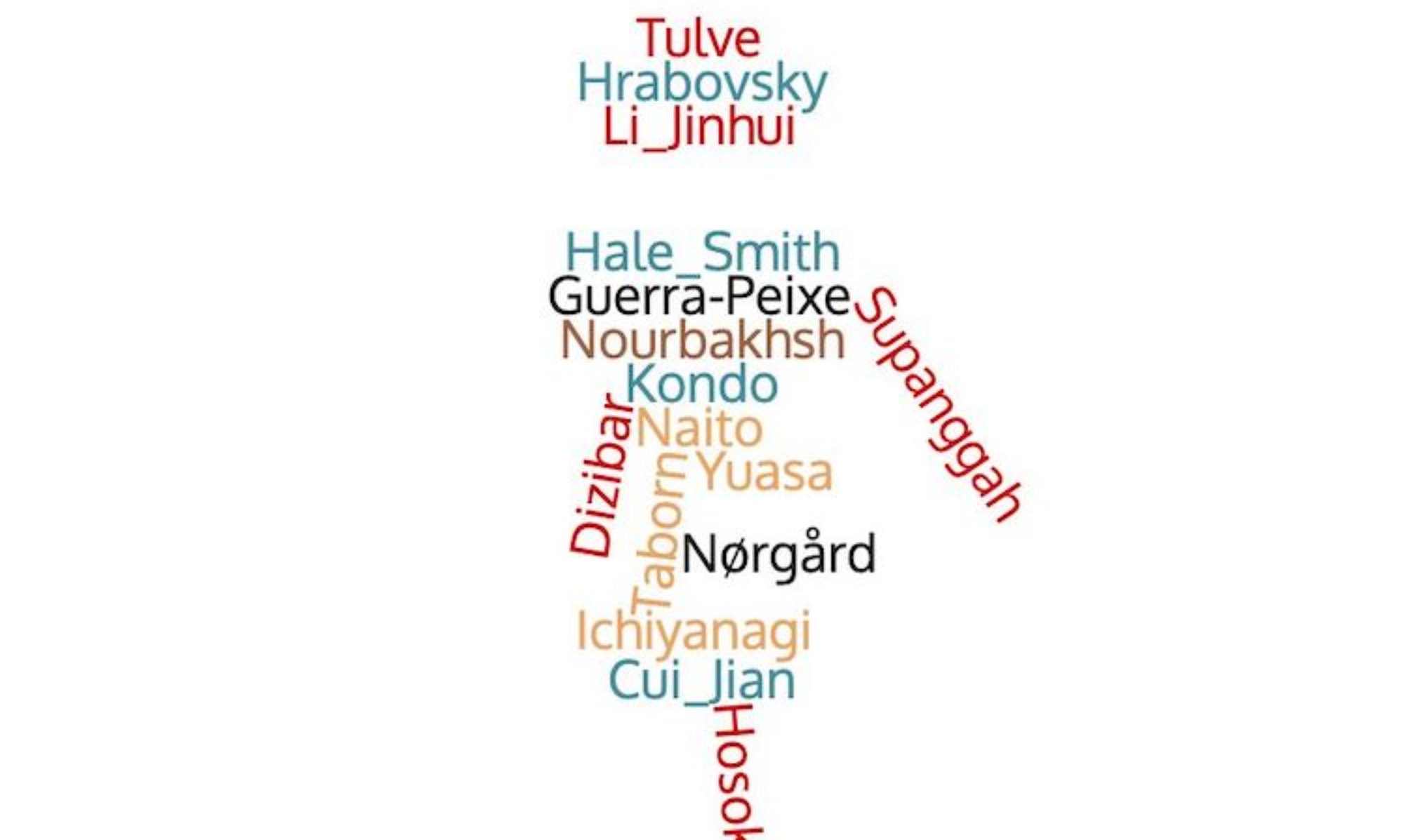By Mao Mengdan and Min Lingkang
This post is part of a series on 100 modern conservatory-trained Chinese composers from 1912 onwards who wrote symphonic, ensemble, and solo instrumental music using Western instruments, as well as choral and solo vocal music, adopting Western tonality or avant-garde techniques. They are regarded as key historical figures in and drivers of modern Chinese music history.
Li Huanzhi (January 12, 1919 – March 19, 2000) was a Chinese composer, conductor, and music theorist born in Hong Kong, with ancestral roots in Jinjiang, Fujian (now part of Quanzhou City, Jinjiang). He graduated from the Lu Xun Academy of Arts and was known for his compositions such as “Spring Festival Overture,” “Symphonic Poem on the Song of Shaanbei,” “Symphony of Vicissitudes,” film music for “Early Spring in February,” and “Selected Songs of Li Huanzhi.”
Li spent his early years in Xiamen, where he was exposed to folk music from Guangdong and Fujian, as well as hymns and organ music from Christian churches. He attended Xiamen Double Ten Middle School, where he participated in the choir and brass band, fostering his interest in music.
In 1935, Li composed music for Guo Moruo’s poem “Pastoral Elegy,” marking his entry into the world of music. The following spring, he enrolled in the National Conservatory of Music in Shanghai, studying harmony under Xiao Youmei.
In August 1938, Li arrived in Yan’an and joined the music department of the Lu Xun Academy of Arts. In November of the same year, he became a member of the Chinese Communist Party. After graduating, he continued to study composition and conducting under Xian Xinghai and remained at the academy as a teacher.
During the Anti-Japanese Invasion War, Li was involved in anti-Japanese invasion literary and artistic activities in Hong Kong as a member of the peripheral organization of the Communist Party, the Anti-War Youth Society. He co-created anti-Japanese invasion songs with poets such as Pu Feng, including “Xiamen Self-Singing” and “Defend the Motherland.” After the victory of the war, Li left Yan’an for Zhangjiakou and became the head of the music department at the North China United University’s College of Arts and Literature.
After the founding of the People’s Republic of China in 1949, Li served as the head of the music work group at the Central Conservatory of Music, the director of the Central Song and Dance Art Troupe, and held various positions such as executive director, secretary, and vice-chairman of the Chinese Musicians Association. He also served as the director of the composition committee of the Music Association and the editor-in-chief of “Music Composition” magazine.
In 1960, Li became the head of the Central National Orchestra. He continued to create passionately, producing numerous works throughout his life. In 1981, as the chief representative of Chinese composers, he attended the Asian Composers Conference and Music Festival in Hong Kong, where his guzheng concerto “Miluo River Fantasia” was premiered to acclaim. Li also delivered a report on “An Overview of Contemporary Chinese Music Composition” at the conference.
Despite battling late-stage cancer and deafness in both ears, Li persevered to complete his last work, the single-movement Chinese orchestral piece “Poem of the Earth,” in 1999. Li Huanzhi passed away on March 19, 2000, in Beijing at the age of 81.
“Spring Festival Overture” is one of Li Huanzhi’s most famous works, originally composed as the first movement of the “Spring Festival Suite.” The piece, initially scored for a Western symphony orchestra with a set of Chinese percussion instruments, showcases Chinese musical themes using Western compositional and orchestration techniques. The “Spring Festival Suite” consists of four movements: “Overture – Da Yangge,” “Love Song,” “Pan Song,” and “Finale – Lantern Festival.”
The suite was inspired by Li Huanzhi’s years in Shaanbei, where he became intimately familiar with the music of the region. The creation of “Spring Festival Suite” was prompted by a collaboration with dancer Dai Ailian in 1953 to collect and research musical material in Shaanbei’s rural areas for a dance work titled “Spring Festival.” Although the collaboration did not materialize, Li used the collected materials to compose the suite.
The structure of “Spring Festival Overture” follows a modified ternary form with an introduction that includes two themes. The overall structure is: Introduction – A – Transition – B – A’. In terms of tonality, the composer employed traditional Chinese pentatonic scales, such as the G do-mode (gong mode) for the first section and the G so-mode (zhi mode) for the second section.
Melodically, the piece extensively uses folk music material, such as the melody in the second section of the overture, which is derived from the Shaanxi folk song “In February.” The orchestration combines Western symphonic instruments with Chinese percussion instruments, creating a blend of Eastern and Western musical elements.
You can watch a performance of Li Huanzhi’s “Spring Festival Overture” at the following link: https://www.bilibili.com/video/BV1eE411979R?share_source=copy_web&vd_source=4681f0684a5c74dd125d397ca5882ba3
